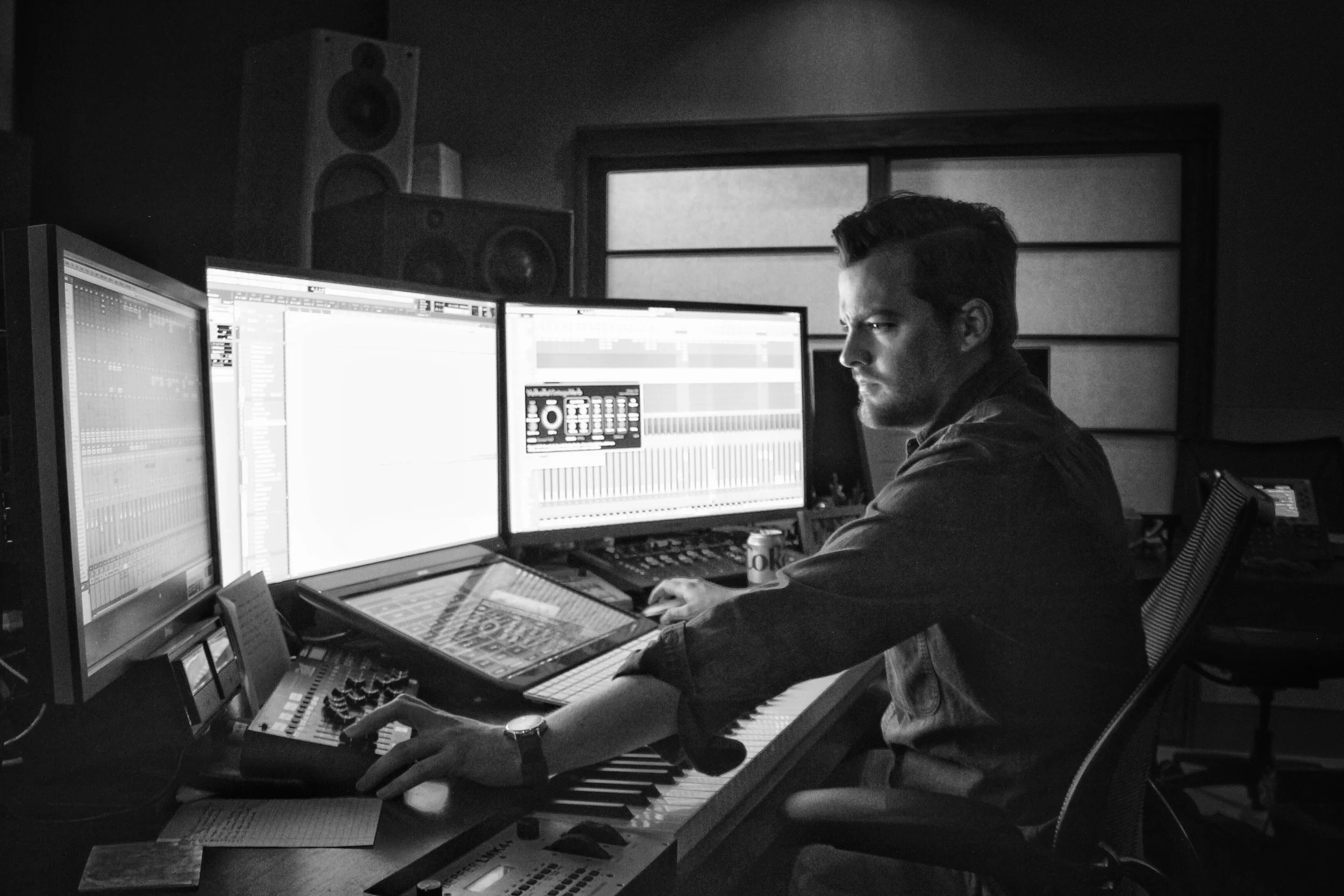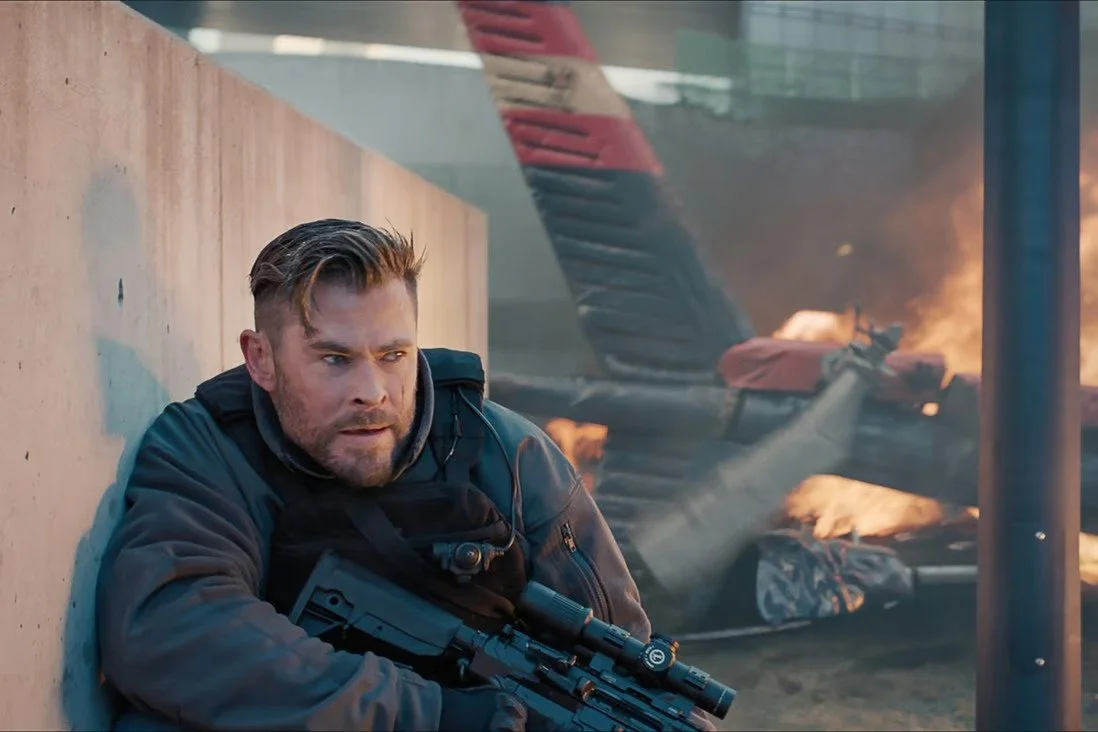Composer Alex Belcher Discusses Working with Henry Jackman on 'Extraction 2'
FilmSpeak exclusively talks to Extraction 2 co-composer Alex Belcher on his collaboration with Henry Jackman in crafting the score of Sam Hargrave’s highly-anticipated sequel to 2020’s Extraction.
Composer Alex Belcher isn’t a stranger to AGBO productions, having worked as a composer for 21 Bridges, Prime Video’s Citadel, and collaborating with Henry Jackman for the score of 2020’s Extraction. He also wrote additional music for Jackman’s music in the Russo Brothers’ Captain America: Civil War, Cherry, and The Gray Man, while also working with Jackman on The Falcon and the Winter Soldier.
While discussing the score for Extraction 2 with FilmSpeak on Zoom, Belcher discussed how his collaboration with Jackman works for a movie like this and how they are able to trust one another as they work closely on crafting the sequel’s sonic palette:
“Henry and I have worked together for so long. It’s a bit hard to describe, but there is a trust that we have with one another. Not to get into the boring, day-to-day tasks we do, but artistically, we really know each other. More importantly than anything, musically, we know how to tell a story, and we want to tell a story the same way musically. It’s not just writing some cool music that happens to work well under Chris Hemsworth being attractive and fun while killing many people. It's more about helping director Sam Hargrave and AGBO tell the story they really want to tell because, oftentimes, the story they want to tell isn't always completely happening on screen. You need to let the audience know of other things going on and remind them of a lot of things happening on screen. Since Henry and I have worked together for so long, we really know and trust each other on how to do all of that. When you have two composers working on the same project, I've heard horror stories of people approaching the storytelling differently, even if they may musically sound the same. That can be a big problem. However, because Henry and I look at the music’s role in a film similarly, it makes the composing process seamless and effortless.”
The composing process starts as early as when the script is ready. Joe Russo returns to write Extraction 2’s screenplay, and Belcher discusses the process by stating that the composing process starts as soon as they read the script:
“When Joe sends us the script, we start thinking about the music and say, ‘Hey, how is this tone different from the first one?’ - The first conversations with Sam were really interesting. Because we knew that we couldn’t completely change what we did, since it worked well and this is a franchise, we want to continue what we first established. But we also don’t want to rehash, reuse and recycle cues from the previous film. We wanted to add something else. One of the earlier questions we asked Sam was, ‘What additional story do we want to tell that we didn't tell on the first one? What do we want to reveal about the character's emotional state?’ Music, especially in an action film, can play a big role in doing that: carrying some of the emotional storytelling. That’s where the conversation started.”
There was a lot of back-and-forth. We had some new characters in this one, so we knew that was going to require some new themes and treatments. We also knew that the action would be treated a little differently. In the first one, Dhaka was such a character in the first film, and it's not in this one. While we didn't use location-specific instruments, we did some with rhythms. Because we knew it would be a different film, we wanted to figure out what would work and what we would need.
One of the great things about doing a sequel is that once the editors got the cut together, they started to cut with the music from the first Extraction. That was really informative for us because we got to sit with Sam and go: “Ok, what's working? What themes can we reuse? What sort of storytelling things did we do on the first one that is working? And where are the holes? What new themes do we need? What news or material do we need?” Musically, it started from the script before we even shot anything and thought about how we would approach this. That’s how AGBO likes to work, which works well for Sam. He’s such an incredible director because it helps us get a tone early on, even before shooting is started. That way, everybody involved knows what film we're trying to make, and we're not all figuring that out in post-production.”
The film’s centerpiece is its 20-minute long one-take, where Tyler Rake (Chris Hemsworth) and Nik Kahn (Golshifteh Farahani) attempt to extract a family from a prison to a train. In composing a scene like this, Belcher described the process as being similar to composing the first film’s one-take:
“Luckily, we had the first one to rely on because we had that big oner. We learned so much on the first one that we were able to apply some of the techniques on how to approach it on this one. Because of this, it was a little less nerve-racking than the first. Normally, from a filmmaking standpoint, editing is your friend. Normally, in any action scene, you have editing to let the audience know that this section of the scene is over and we’re now moving on to something else. But you don’t have that in a 20-minute oner.
When we talked about that scene with Sam, our first job was to figure out how to chapter this and how do we let the audience know that the scene moves on to something else. We need to do the role the editing would have normally done. And a lot of that was figuring out where we decide to have music and where to take it out, and not the normal conversations of what is the music doing, what is the story we're trying to tell, and what the high points we need to hit. Of course, all that goes without saying, but it was more important to figure out when should music come in and out of the scene and how should it come in and out. We use music throughout that big sequence to help chapter and divide it up in a way that you would normally do with editing. It pays off well because we were very disciplined about when and where we had music. It would have been easy to put music from beginning to end. But we were all so confident that we didn't need to do that because it was shot, acted, and choreographed so well that we didn't need music as a throughline. However, we knew we needed it in certain places, and that’s where the experimentation took place with that one.”
During our audio conversation, we also expanded on the collaboration with director Sam Hargrave, how he approaches action when he works with someone else, how to balance out the film’s high-octane action sequences with a human core, composing character-specific cues for Rake and Nik, and much more.




